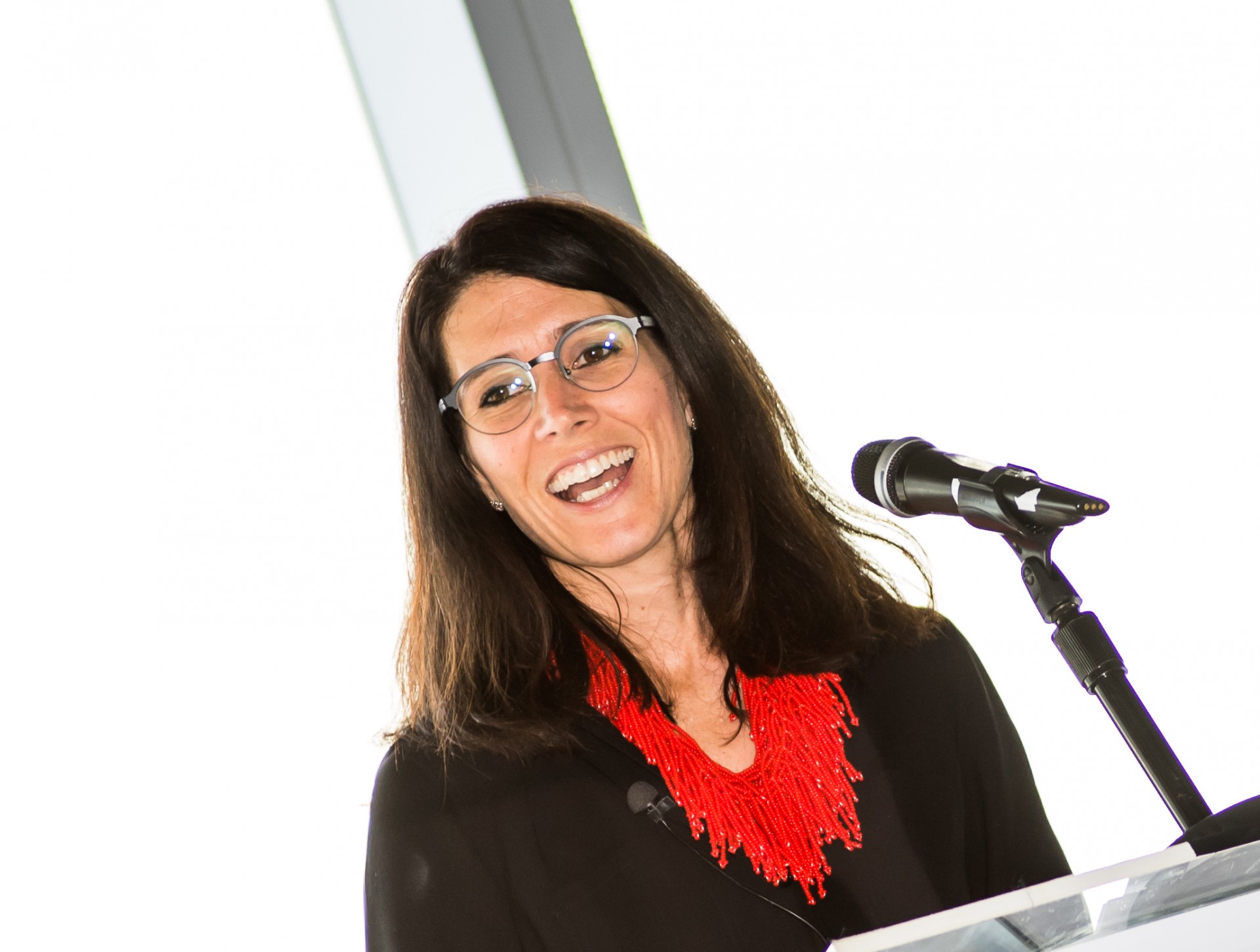25th Nov, 2nd Dec & 9th Dec
Online Events | Follow us on Twitter: #TROPICO2020
Societies and governments across Europe aim to become more open and connected using digital tools. Providing ICT-enabled public services has become a priority for most European governments, promising more efficient and high-quality services. Connecting various stakeholders is a central objective of contemporary open and digital governments. In this context, governments increasingly seek to establish collaborations, on the one hand between governments, and on the other hand between governments and the private sector. These collaborations provide both shared public services and aim to establish new ICT-enabled public services.
The TROPICO Online Series 2020 aimed to unpack how public and private actors collaborate to facilitate the digital transformation in Europe and which challenges they face.
TROPICO Online Series 2020
The three virtual sessions provided relevant insights on the main themes of the event.
Session 1
The first session’s focus was on Collaborating for Digital Transformation during the COVID-19 pandemic. Here, we have learned that:
- Although being challenging, the COVID19 situation also brings new opportunities, especially connected to the development of new services and collaboration between governments, the private sector, and citizens.
- The pandemic has showcased the importance of robust response to new challenges, and adapting to new circumstances in an agile, pragmatic and collaborative way. In the unpredictable crisis situation, the traditional strategies of crisis response (foresight, protection, resilience) have proved unsuccessful. In fact, there is a strong need for public administrations to be both stable and flexible.
- Incentivizing robustness is important. The right incentives can have a great impact on decision-makers’ motivation to act and implement changes. Citizen involvement and empowerment is necessary to ensure accountability. This, again, requires social capital and trust.
- The crisis highlights that governance is connected to both administration and politics. New solutions and changes should be technology-supported rather than technology-driven, and it is therefore crucial for the involved actors to have skills, knowledge and competence which will allow grasping the potential of technology and its use.
Session 2
The second session investigated Digital Transformation: The Challenge of Better Collaboration within Government, and highlighted that:
- Digitalisation is a wicked problem and the actors involved in the process need to recognize the related complexity, uncertainty, and ambiguity. Thus, they should immerse in relevant and intertwined processes at the macro-, meso-and micro-level.
- Providing high-quality data with metrics that have built-in equity is crucial and can only be achieved by cross-sectoral collaboration.
- Digital transformation requires a sequential approach, involving hierarchical coordination measures and network-type measures at the appropriate stages of such transformation.
- Building a common vision and clear “rules of the game” are important factors in the digitalisation process. This requires time, resources, and capacity.
Session 3
The final session of the TROPICO Online Series focusing on Public-private collaboration for ICT-enabled service innovation gained the following insights:
- There is a need for increased trust in e-Health systems among citizens and patients. This is a responsibility of both public administrations and relevant societal partners. In that regard, the collaboration requires a well-established governance structure.
- In the process of managing ICT-supported collaborative projects, it is very important to know how to get the best out of all actors involved. This requires a pragmatic approach and providing the involved actors with different workable versions of plans and goals, along with making sure that all participants are recognized for their contribution to the project.
- It is important to balance formalization (keeping actors in check) and creativity (ensuring open innovation processes) in collaborative innovation partnerships.
- Facilitating co-creation and installing effective communication towards key target groups, in addition to realistic planning, providing a clear legal framework and a transparent management structure, are important success factors for collaborative partnerships.
For further details on the TROPICO Online Series 2020 and more key lessons learned, see the D10.5 – TROPICO Online Series 2020 report.
Session 1 - 25 November 2020
Collaborating for Digital Transformation during the COVID-19 pandemic
Session 2 - 2 December 2020
Digital Transformation: The Challenge of Better Collaboration within Government
Session 3 - 9 December 2020
Public-private collaboration for ICT-enabled service innovation
TROPICO Online Series '20 Program
Session 1 - November 25th
-
Session 1: Collaborating for Digital Transformation during the COVID-19 pandemic
The Online Series start off with the pressing concern of tackling the current COVID-19 pandemic. Governments around the world struggle to get the infection rate under control. New policies and services are being introduced, of which some are meant to monitor and control infection outbreaks. This session focuses on some of these new services, and how collaboration between governments, private firms and third sector organizations can help in generating and providing new services.
-
14:30 - 14:35 (UTC+1, Berlin time)

Welcome
Welcome and introduction (Lisa Witter, Moderator)
Lisa Witter is the co-founder and executive chair of Apolitical, the global learning network used by public servants in 170+ countries. The tech company’s mission is to accelerate the transformation of government. Apolitical was named one of Fast Company’s most innovative companies in 2018. She’s a World Economic Forum Young Global Leader, serves on and has co-chaired the Forum’s Council on Agile Governance, and served for six years on the Brain and Behavior Council. She’s a serial entrepreneur, author, and former public servant with deep experience in politics, policy, and behavioral science. As a policy geek and lover of politics, she’s co-founded several political training institutes over the last 25 years including the Apolitical Academy. She was recently awarded, along with her co-founder Robyn Scott, the 2020 Creative Bureaucracy Award.
-
14:35 - 14:45

Introduction
Introducing the TROPICO project (Lise H. Rykkja, coordinator of the TROPICO project, University of Bergen)

By loading the video, you agree to Vimeos's privacy policy.
Learn moreLise H. Rykkja is a Professor in Political Science/Public Administration at the Dept. of Administration and Organization Theory, University of Bergen, Norway, and the Coordinator of the TROPICO project.
Rykkja has published widely in academic journals and has led and participated in several national and international research projects. She also co-organized, and acted as chair and speaker at a number of international and national conferences.
Her research concentrates on the organization and development of public administration and democratic institutions, public sector management, administrative policies and reforms, based in a broad institutional and comparative perspective. More recently, she also focused on digitalization and the use of ICT in public sector collaboration. Rykkja's academic work includes studies of administrative coordination in the Nordic countries, and public sector policies and government organization for “wicked problems” - including public security, preparedness, crisis management and welfare.
-
14:45 - 15:05

Keynote speech
Keynote speech on the need for robust governance responses to turbulent problems during the COVID-19 pandemic (Eva Sørensen, Roskilde School of Governance)

By loading the video, you agree to Vimeos's privacy policy.
Learn moreEva Sørensen is Professor of Public Administration and Democracy and Vice-director of the Roskilde School of Governance, Roskilde University, Denmark.
The main focus of her research is connected to political leadership and policy innovation, interactive governance, changing role perceptions among politicians, practitioners and citizens, along with new forms of democracy and citizen involvement.
She has been a member of many international research networks and reviewer/editorial board member of numerous high ranking international journals (i.a. Public Administration, Public Administration Review, Public Management Review, Government and Opposition, International Review of Administrative Sciences).
Read more about Eva Sørensen here.
-
15:05 - 15:25

Presentation
Presentation: Tackling the pandemic in Estonia (Tõnis Jaagus, Head of the Health Division of the E-services Development Department, Health and Welfare Information Systems Centre, Estonia)

By loading the video, you agree to Vimeos's privacy policy.
Learn moreTõnis Jaagus is Head of Health Division in Health and Welfare Information Systems Centre (an ICT competence center in the field of health, social security and labour), Estonia. His division is responsible for development of Estonian health information system, patient portal, communicable diseases registry and other related national health registries. Tõnis Jaagus is an experienced e-services and e-Health professional with background both from private and public sector.

Tackling the pandemic in Estonia
1 file(s) 0.00 KB -
15:25 - 15:45

Presentation
Presentation: Designing Open Social Innovation: Lessons from the German #wirvsvirus Hackathon (Holke Brammer, ProjectTogether)

By loading the video, you agree to Vimeos's privacy policy.
Learn moreHolke Brammer is as a strategic mission lead at ProjectTogether - a non-profit organization with the aim of creating open social innovation platforms to solve social challenges, with participation of citizens and different institutions and companies.
He has been one of the main organizers of the world´s largest hackathon against COVID-19 - #WirVsVirus in cooperation with the German Federal Government, which gathered a large number of citizens (including programmers, designers, entrepreneurs, students and social workers).
Holke Brammer has an academic background in Political Economics, and his research interests are connected to conditions underlying implementation of good long-term policies in democracies and the impact of limited voter attention on elections and policy outcomes.
Read more about Holke Brammer here or here, and about the German #wirvsvirus hackathon.
-
15:45 - 16:05
Panel discussion
Panel discussion on the challenges and opportunities of the current COVID-19 pandemic on digital transformation through collaboration
-
16:05-16:15
Comments & Questions
Questions & Answers with the audience
Session 2 - December 2nd
-
Session 2: Digital Transformation: The Challenge of Better Collaboration within Government
Session 2 focuses on the research and findings of TROPICO Work Package 6, which is aimed at studying the collaboration between governments and how this affects the digital transformation of these governments. Emphasis is placed on collaboration in the context of Smart Cities.
-
14:30 - 14:35 (UTC+1, Berlin time)

Welcome
Welcome and introduction (Lisa Witter, Moderator)
Lisa Witter is the co-founder and executive chair of Apolitical, the global learning network used by public servants in 170+ countries. The tech company’s mission is to accelerate the transformation of government. Apolitical was named one of Fast Company’s most innovative companies in 2018. She’s a World Economic Forum Young Global Leader, serves on and has co-chaired the Forum’s Council on Agile Governance, and served for six years on the Brain and Behavior Council. She’s a serial entrepreneur, author, and former public servant with deep experience in politics, policy, and behavioral science. As a policy geek and lover of politics, she’s co-founded several political training institutes over the last 25 years including the Apolitical Academy. She was recently awarded, along with her co-founder Robyn Scott, the 2020 Creative Bureaucracy Award.
-
14:35 - 15:00

Keynote speech
Keynote speech (+ Q&A) on Cross-Boundary Collaboration amid Digitalization: Promise and Challenges (Jane Fountain, University of Massachusetts Amherst)

By loading the video, you agree to Vimeos's privacy policy.
Learn moreJane E. Fountain is Distinguished University Professor of Political Science and Public Policy at the University of Massachusetts Amherst. She directs the National Center for Digital Government, a university research center. Fountain was selected to the World’s 100 Most Influential People in Digital Government and one of the 14 Most Influential Academics in Digital Government in 2018 and 2019 by Apolitical.
Professor Fountain is author of the semenial work “Building the Virtual State: Information Technology and Institutional Change (Brookings Institution Press, 2001) and of Building an Enterprise Government: Creating an ecosystem for cross-agency collaboration (Partnership for Public Service and IBM Center for Business of Government, 2016). Fountain's current research is focused on institutions and digitalization, specifically on cross-boundary and emergent institutional arrangements and has been published in leading international journals. She holds master's degrees from Harvard and Yale Universities and a PhD from Yale University. Fountain is a Fellow and Secretary of the Board of Directors of the National Academy of Public Administration.
Cross-Agency Collaboration: Deepening Knowledge for Digital Government
1 file(s) 37.00 MB -
15:00 - 15:10

Presentation of Key Findings on Successful Collaboration in the Context of Digitalisation Projects
Presentation by Gerhard Hammerschmid, TROPICO Work Package 6 leader, on the research and key findings of Work Package 6 including a short poll among the audience (Gerhard Hammerschmid, Hertie School)

By loading the video, you agree to Vimeos's privacy policy.
Learn more -
15:10-15:50

How to Organize Collaboration within Smart Cities? Panel Discussion
Short inputs from government experts coordinating Smart City strategies and discussion (chaired by Gerhard Hammerschmid, Hertie School)
Panelists:
- Beate Ginzel, Director of the Digital City Unit in the City of Leipzig (Germany)

By loading the video, you agree to Vimeos's privacy policy.
Learn moreBeate Ginzel is an architect and has a doctorate in urban development. She has worked in Germany, Netherlands and Tanzania and was a researcher and lecturer at the Leipzig University for ten years.
Between 2014 and 03/2019 she worked as Head of Division at the Office for Urban Regeneration and Residential Development of the City of Leipzig. In this function she was responsible for the implementation of the Smart City-process and the implementation of the housing policy strategy of Leipzig. Since 04/2019 she is the director of Digital City Unit of the City of Leipzig.
Gunnar Edwin Crawford, Head of Stavanger Smart City (Norway)

By loading the video, you agree to Vimeos's privacy policy.
Learn more
Gunnar Edwin Crawford
Gunnar Edwin Crawford is Head of Stavanger Smart City, innovating across public-private boundaries, co-creating the smart city of the future. Gunnar has extensive hands-on experience with innovation and development within the fields of welfare technology, smart homes and smart cities. He is a patent holder, and winner of a CES Innovation award. He has contributed in several EU projects, including two Horizon 2020 projects – Triangulum and Invade.
Crawford’s professional background is within ICT, energy and innovation.
Gunnar is co-author of the book "Creating Disruptive Ecosystems" (2016), about the importance of understanding new digital business models when innovating digital systems and services.Linkedin | Twitter
About Stavanger Smart City
- Stavanger Smart City introduction - Norwegian – English subtitles.
- English home page
- Norwegian roadmap PDF
- Nordic roadmap websiteRalf-Martin Soe, Founding Director of Smart City Center of Excellence at TalTech University (Estonia)

By loading the video, you agree to Vimeos's privacy policy.
Learn moreRalf-Martin Soe is a Founding Director of the FinEst Twins Smart City Center of Excellence and an Affiliated Development Manager at the ITL Digital Lab. His main role has been to intiate and conduct smart city pilots jointly with European cities (e.g. Tallinn, Helsinki, Hamburg, Riga, Turku, Vanttaa, Kongsberg, Veilje, Zemgale and Gdansk).
His previous positions include being an ICT Counsellor to the Minister of Entrepreneurship and Information Technology, a Supervisory Board Member at the Estonian Internet Foundation and a Government Fellow at the United Nations University’s e-Government Unit. During 2009-2013, he was a Financial and Digitalisation Consultant working with the UK Government, PwC, Praxis and United Nations University. From 2006-2009, he was an Investigative Journalist at the Business Daily Äripäev and was selected as the Best Young Journalist in Estonia by the Estonian Newspaper Association in 2008, after several nominations.
Ralf-Martin Soe has two master degrees in Financial Management (MSc, Maastricht University/ United Nations University and MBA, University of Tartu) and has a PhD degree in Technology Governance from TalTech. He was selected as the most influential person of the year 2019 in Estonia by the Estonian Association of Information Technology and Telecommunications.
Klaus-Michael Ahrend, CEO of HEAG (Germany)

By loading the video, you agree to Vimeos's privacy policy.
Learn more
Klaus-Michael Ahrend
Prof. Dr. Klaus-Michael Ahrend is the CEO of HEAG, the municipal holding company of Darmstadt. He is a member of the steering committee of Digitalstadt Darmstadt GmbH, and a member of several supervisory boards and industry associations. In addition, Klaus-Michael Ahrend serves as a honorary professor at the University of Applied Sciences in Darmstadt in the field of Strategic Management. He holds an MBA of University of St. Gallen and a PhD of the University of Trier.
-
15:50-16:00

Closing (Lisa Witter, Moderator and Gerhard Hammerschmid, Hertie School)
Session 3 - December 9th
-
Session 3: Public-private collaboration for ICT-enabled service innovation
Session 3 discusses public-private collaboration and how it affects the creation of ICT-enabled public services. Emphasis is placed on how governments collaborate with private firms, the third sector, non-profit organizations, and citizens and users to jointly create new ICT-enabled services (with a focus on eHealth services). The session is based on international research comparing innovation oriented partnerships in five European countries (Work Package 7, TROPICO).
-
14:30 - 14:45 (UTC+1, Berlin time)

Welcome
Welcome and introduction of the program and format (Lisa Witter, Moderator and Koen Verhoest, GOVTRUST Centre of Excellence, University of Antwerp).

By loading the video, you agree to Vimeos's privacy policy.
Learn moreIntroduction of the participants who will feature the following two parts of the TROPICO Online Series Session 3:
Moderator
Lisa Witter
Lisa Witter is the co-founder and executive chair of Apolitical, the global learning network used by public servants in 170+ countries. The tech company’s mission is to accelerate the transformation of government. Apolitical was named one of Fast Company’s most innovative companies in 2018. She’s a World Economic Forum Young Global Leader, serves on and has co-chaired the Forum’s Council on Agile Governance, and served for six years on the Brain and Behavior Council. She’s a serial entrepreneur, author, and former public servant with deep experience in politics, policy, and behavioral science. As a policy geek and lover of politics, she’s co-founded several political training institutes over the last 25 years including the Apolitical Academy. She was recently awarded, along with her co-founder Robyn Scott, the 2020 Creative Bureaucracy Award.
Keynote speakers
Vincent Dupont, Project Coordinator of the Belgian Personal Health Viewer (Belgium)
Vincent Dupont is a project coordinator of the Belgian Personal Health Viewer, with a special interest in innovation and digital transformation in the Health industry.
He has a well-proven experience in developing international markets and driving innovation partnerships. Vincent Dupont has actively participated in a number of arrangements connected to eHealth in Belgium (i.a. MedTech Flanders, Mijngezondheid project, Z-plus new care platform 2.0), as well as various start-up boards.
Currently, he holds a mandate for BlueHealth Innovation Center (supported by Microsoft) as Partner Development & Investor Relations lead, spurring entrepreneurship and innovation in Health.
Koen Verhoest, Professor of Public Administration and Management, GOVTRUST Centre of Excellence (University of Antwerp, Belgium) and Work Package 7 leader in the TROPICO project
Koen Verhoest is Research Professor in Public Governance (GOVTRUST – University of Antwerp) with a research interest in issues on autonomy, coordination, collaboration as well as innovation and trust in a public governance context. He is the coordinator of the multi-disciplinary GOVTRUST Centre of Excellence (focussing on trust and distrust in multi-level governance) and spokesperson of the Politics & Public Governance research group at the University of Antwerp. He is/has been involved in large comparative research projects like COBRA-CRIPO on autonomy of agencies, TROPICO on digital transformation and collaboration (H2020), PSI-CO on innovation through collaboration and TiGRE (H2020) on trust in regulation. He has publications in high level journals like Governance, Regulation & Governance, Public Administration Review, Public Administration and Public Management Review. He has co-authored and –edited five books, like ‘Government Agencies: Practices and Lessons from 30 Countries’ and ‘Coordination of Public Sector Organizations’.
Panelists
Tim Weltens, Project Coordinator for MijnWGK, Wit-Gele Kruis (Belgium)
Wit-Gele Kruis is the largest organization for homecare nursing in Belgium. +6000 nurses take care of +65.000 patients each day. Tim Weltens is responsible for eHealth projects that focus on sharing information with other professionals and the patient. He has a MA degree in politics and economics. He’s active in e-Health for over 10 years. Tim Weltens is a member of various advisory boards on eHealth projects in Belgium and the co-chair of the “ICT4Care” training program.
Pernille Moll, Chief Consultant of Muusmann (Denmark)
Pernille Moll is Chief Consultant at the Danish consuntancy firm MUUSMANN. She is specialised in organization management, quality development and optimization, primarily in the field of health and elderly care. Pernille has previously worked in Danish ministries and in Danish Regions the national single-payer organization covering hospital and primary care. Her knowledge and experience in optimizing the health sector has supported the implementation of several important health innovations, such as data driven improvement focusing on results that matter for patients (value based healthcare) and development of models and frameworks for local cooperation around more integrated and efficient care for frail elderly and people with chronic diseases. She has practical experience working in projects involving both public providers and private partners in several settings where – in general – the public part has the responsibility, the complex problems, the increasing demand and the budgetary limitations, whereas the private partner on the other hand has the ideas, the speed and the know-how to develop and test innovative solutions.
Read more about Pernille Moll here and here.
Rainer Kattel, Deputy Director and Professor of Innovation and Public Governance at the UCL Institute for Innovation and Public Purpose (IIPP)
Professor Kattel has served on various public policy commissions, including the Estonian Research Council and European Science Foundation. He has worked as an expert for the OECD, UNDP and the European Commission. Currently, he leads the Estonian Government’s Gender Equality Council, and is a member of E-Estonia Council advising the Prime Minister of Estonia. For more information see here.
-
14:45 - 15:30
Part 1: Enhancing public service innovation by establishing collaborative partnerships: characteristics and management of the partnership
Part 1 discusses how specific characteristics (e.g., structure of the partnership) of the partnerships and how these partnerships are managed, affect the creation of new, ICT-enabled services.

By loading the video, you agree to Vimeos's privacy policy.
Learn more
By loading the video, you agree to Vimeos's privacy policy.
Learn more -
15:30-16:10
Part 2: Preconditions of collaborative innovation: features of involved individuals and organizations, user involvement and use of ICT
Part 2 discusses how preconditions of collaborative innovation affect the creation of new, ICT-enabled services. We look specifically at the effect of features of the involved individuals and organizations, user involvement and the use of ICT in the partnership.

By loading the video, you agree to Vimeos's privacy policy.
Learn more
By loading the video, you agree to Vimeos's privacy policy.
Learn more -
16:10-16:15

Final reflections
Closing comments and end word (Lisa Witter, Moderator and Koen Verhoest, GOVTRUST Centre of Excellence, University of Antwerp)





